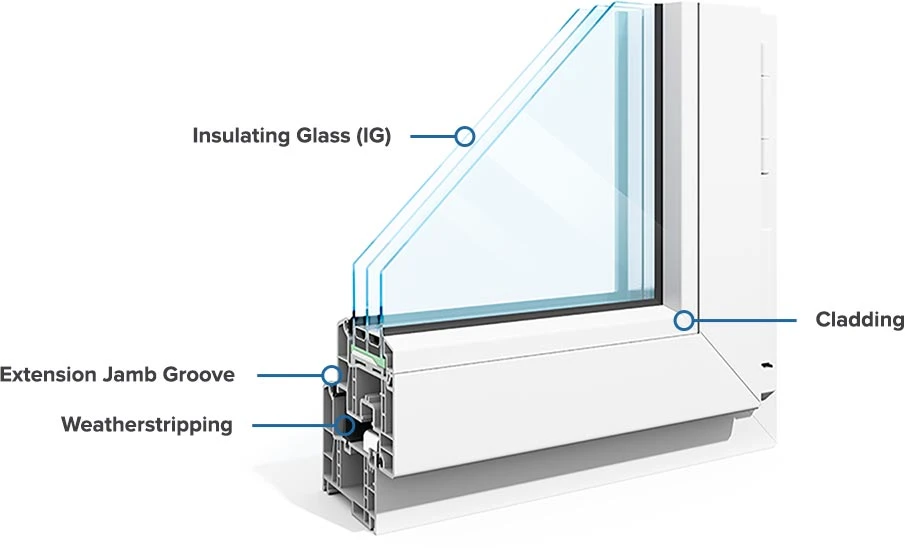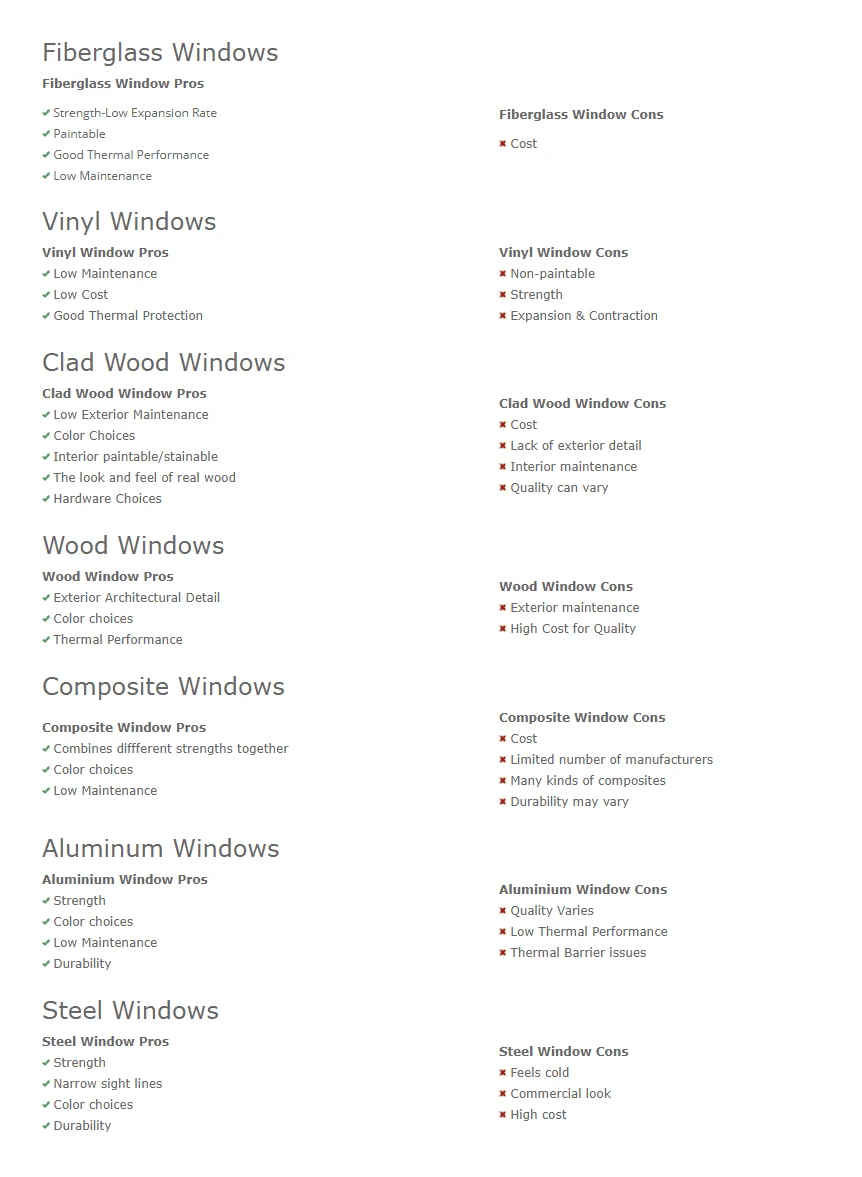Home buyers love the look and feel of real wood windows. Wood is the classic window material, used to create beautiful windows for centuries. In addition to being lovely in texture and visually attractive, wood windows have many advantages over other windows.
Wood is a naturally good insulator. It's durable. It won't warp in the sun or melt. Well-maintained wooden windows can literally last for centuries.
So why aren't more windows made of wood? The truth is that wood, for all its positive qualities, has some vulnerabilities. The primary vulnerability of wood is that it requires regular maintenance in order to maintain integrity and functionality.
Windows that are not regularly stained or painted will swell in humid weather and may become warped, rotted or moldy when regularly exposed to moisture.
Homeowners seeking ways to install wooden windows without the maintenance of wood turn to window cladding. If you're a homeowner purchasing windows and you're seeking a way to make your wooden windows more durable, cladding may be the solution.
Here’s what every homeowner should know and what we will cover:
- What Is Window Cladding?
- What Are Advantages of Cladding?
- What Are the Types of Cladding?
- Comparing the Types of Window Materials
- Comparing Clad and Non-Cladding Windows?
What Is Window Cladding?
Window cladding is a vinyl or metal cover that covers a wooden core. Cladding is found on the side of the window that faces the home's exterior. Cladding windows helps preserve the wood and improve its weather resistance. Inside the home, the wood is exposed and visible. Outside the home, the window is protected and safe from the elements (1, 2).

What Are Advantages of Cladding?
There are many reasons that homeowners turn to window cladding to protect their windows (3, 4).
- Reduced maintenance. Window cladding makes it possible to have wooden windows without the regular maintenance. Cladding requires no painting, sealing or staining to look its best.
- Beauty. Cladding is designed to match the exterior of the home, regardless of the siding material. There's never any extra maintenance that requires homeowners to paint the cladding a different color.
- Insulation. Windows that are protected by cladding are generally better insulated than windows that are not.
- Energy Efficiency. Homeowners can save money on their utility bills and can also help reduce the home's carbon footprint. Cladding is often not the most efficient option, however. So, if energy savings is one of your primary concerns, talk through all of your options with a window contractor.
- Weather Resistant. Cladding prevents water, wind, and other weather elements from penetrating the original window material.
- Damage Protection. Installing on top of frame or on exterior can prevent damage to window frame and wall structure.
- Look of wood. Windows that have cladding on the exterior can maintain the look of bare wood inside the home.
What Are the Types of Cladding?
There are many different types of window cladding. Each type has different characteristics. Durability, insulation and appearance are all affected by the type of cladding on the windows (5, 6, 7).
Extruded Aluminum
At 1/8 of an inch thick, this type of cladding is stronger and more durable than other types of cladding available. Extruded aluminum is less likely to be dented or scratched and continues to look fantastic even years after installation.
Aluminum is typically paired with a special type of paint called Kynar, a fade-resistant product that resists chalking better than other paint products (8).
Extruded aluminum works well with windows of special shapes and is typically inexpensive. However, extruded aluminum is not as good an insulator as some other types of cladding.
Vinyl Clad Windows
Vinyl clad is the most popular type of window cladding. Vinyl clad exteriors are affordable, energy efficient, easy to maintain and long-lasting (9).
Homeowners who install windows with a vinyl clad exterior should shop around to find the best quality possible.
Low-end vinyl cladding can chalk or become warped with time, which can detract from the appearance of the home and may even cause damage to the windows.
Composite Fiberglass Cladding
Fiberglass clad windows contract and expand at nearly the exact same rate as normal glass, so fiberglass cladding and the windows themselves tend to expand and contract together. This ensures that the window stays weather-tight and prevents seal failure.
Composite fiberglass is very strong, however, it's difficult to use with windows of special shapes.
Roll Form Aluminum Cladding
Typically, the least expensive cladding is roll form aluminum, which is much thinner than premium quality cladding. It's common for roll form aluminum clad windows to chalk or fade with time, because of the quality of the paint and the product (10).
Comparing the Types of Window Materials

Comparing Clad and Non-Cladding Windows?
Non-clad windows are standard in the industry. Non-clad windows are made of all fiberglass, vinyl or aluminum. Often, these windows are naturally weather resistant and require no extra protection to stay safe from the elements. Non-clad windows also have the advantage of being affordable. Homeowners hoping to save money on their windows often elect to get non-clad varieties (11).
Meanwhile, homeowners who get exterior clad windows enjoy the look and feel of wood inside the home along with weather proof strength outside the home. For homeowners hoping for a more traditional, elegant appearance in their home, clad windows are best.

